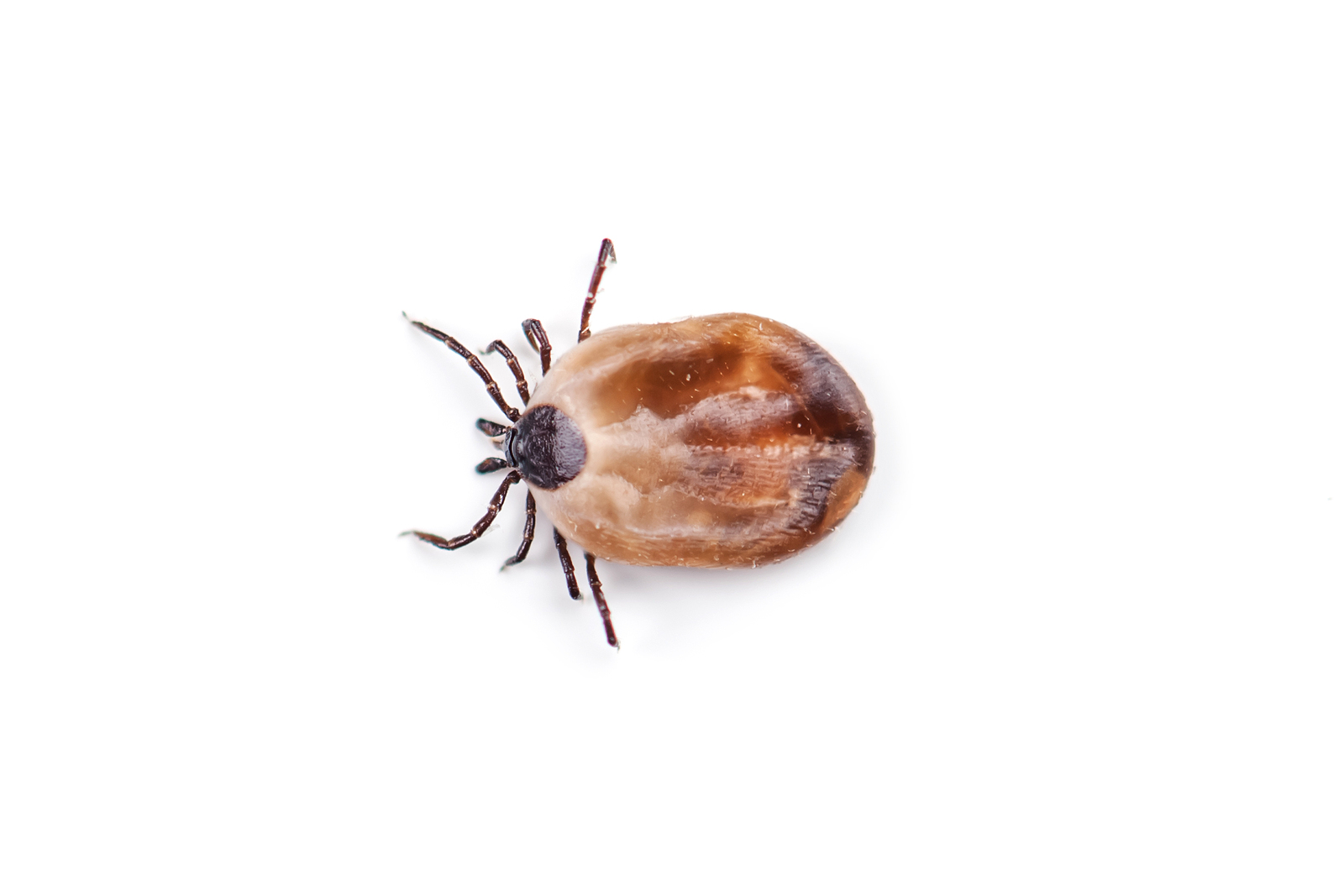Ticks

Black-legged ticks, or deer ticks, attach themselves to animals or humans and proceed to obtain their blood meal by biting the victim.
Identification
-
Ticks are orange-brown with dark legs
-
Flat, broad oval shape
-
1/8 inch long
Environment
-
Ticks live in low lying areas such as grass, shrubs, and bushes while waiting for a passing host to attach on to
-
Female ticks have about 3,000 eggs in the spring
-
Ticks feed on humans, mice, squirrels, raccoons, skunks, dogs, and birds
Threats
-
Tick bites can cause irritation around the site of the bite, allergic reaction, or mouth parts can remain in the host’s skin when the tick is removed
-
Ticks are known to transfer Lyme disease, anaplasmosis, and babesiosis
Treatment
-
When in wooded areas or tall grass, wear long pants, long sleeves, and closed toed shoes
-
Use a bug repellent that contains DEET
-
Keep grass and other vegetation on your property cut and maintained
-
Inspect yourself for ticks after being outdoors
-
Inspect your pets for ticks after being outdoors
-
If ticks are found on you or pets, use tweezers to remove with slow, gentle, upward pressure
LOCATIONS
We have service centers throughout Georgia, Tennessee, Alabama, Florida, North Carolina, and South Carolina.
HOURS
Service Centers: M-F 7:30AM - 5:00PM
Customer Care: M-F 6:30AM - 5:30PM
